Poetics of Nonbelonging
Authors from Southeast Europe
21-24 March 2024 | Leipzig Book Fair
#lbm24 #traduki #poeticsofnonbelonging
21-24 March 2024 | Leipzig Book Fair
#lbm24 #traduki #poeticsofnonbelonging
The Leipzig Book Fair 2024 takes place from 21-24 March.
TRADUKI has prepared fascinating talks with authors and experts in Leipzig: on different stages at the book fair and at the UT Connewitz. Our famous Balkan Film Week will take place as usual in the weeks leading up to the book fair.
With: Antje Contius, Angelika Salvisberg and other participants
TRADUKI invites you to the opening of its stand and the presentation of the 2024 literary programme. Save the date!
With: Nataša Nelević
Moderator: Annemarie Türk
6 November 1946: a day that brought progress to a backward Yugoslavia with the completion of a major infrastructure project? At least that’s what the well-known Yugoslav author Miroslav Krleža wrote in his diary. Was there anything else? The narrator considers the possibility that her mother might have met the writer that day. Faced with this possibility, she questions the notions of femininity, observes the development of the socialist era and insists on confidently juxtaposing a marginalised ‘female’ text with that of the well-known writer.
Co-organiser: Ministry for Education, Science, Culture and Sports of Montenegro
With: Edo Popović
Moderator: Annemarie Türk
The body may have cancer, but Edo Popović is alive. And enjoys it! He may have retired from Zagreb to the countryside, but he is alive. Still. Every now and then memories come up, for example of his mother, who went to West Germany as a guest worker when he was still a little boy. But Popović still celebrates all facets of life, and we celebrate with him!
With: Jernej Šček, Kaja Širok, Federico Tenca Montini
Moderator: Barbara Anderlič
Bella Italia! Sun, Capri, cappuccino. Just a few years after the end of the Second World War, Italy had almost completely shed its fascist past. Who had time to ponder the past when a sun-kissed Audrey Hepburn was whizzing through the streets of Rome on a Vespa and enchanting the world? Who cared what happened in Gonars, Rab and San Sabba during the interwar period and later during the war? The Slovenes remembered: the Slovenian minority in Italy. How did it fare and how is it doing in Meloni’s Italy?
With: Brigitte Döbert, Sebastian Guggolz, Miranda Jakiša
Moderator: Jörg Plath
Published posthumously, Janko Polić Kamov (1886-1910) describes in “Austrocknen” (tr: Brigitte Döbert, Guggolz) the highs and lows of a young man who sets out to find his place in the world, only to realise that the world has not been waiting for him. Kamov’s barely veiled autobiography retells moments of intoxication, sexual awakening, political and artistic self-discovery and the protagonist’s rebellion against his oppressive petty-bourgeois background. But there is something in his throat, an ulcer, that wants to put an abrupt end to his life.
With: Dušan Šarotar, Saša Šavel Burkart
Moderator: Erwin Köstler
The Slovenian writer Dušan Šarotar (his book Panorama has just been published in German translation by Metka Wakounig by Schenk Verlag) and the director of the Slovenian cultural and information centre SKICA Berlin, Saša Šavel Burkart, both come from the Prekmurje region and have personal stories to tell about their ancestors.
On April 26 of this year, it will be 80 years since the deportation of about 400 Jews from this region, which was under Hungarian administration until April 1944. Only about 20 of them returned. The rest are mere memories, with which the second generation of descendants grapples in their novels so that everything that those who returned wanted to forget is not lost forever. In 2007, Šarotar published the novel “Biljard v Dobrayu,” in which the story of the catastrophe of the Prekmurje Jews was written down as a work of fiction for the first time. As there are fewer and fewer direct witnesses of the Holocaust, the era of storytellers who preserve history is coming.
Organiser: Slovenian Book Agency
With: Rita Petro
Moderator: Loreta Schillock
A conversation with poet Rita Petro.
Organiser: National Centre for Books and Reading (QKLL)
With: Zoltán Danyi, László Végel
Moderator: Eric Marr
The late Serbian writer Aleksandar Tišma (1924-2003) was one of the most important chroniclers of Vojvodina, the region of Serbia where Hungarian is also spoken. In Leipzig, we are now presenting two key contemporary voices of Serbia’s Hungarian minority: Zoltán Danyi with his book “Rosenroman” (tr: Terézia Mora, Suhrkamp) and László Végel with the novel “Balkanschönheit oder Schlemihls Bastard” (tr: Christina Kunze, Wieser). The protagonists of both novels interpret and analyse in their own way the past and present of the region and their own existence, which has been ravaged by war and disease. And despite everything, sometimes a ray of dazzling beauty unexpectedly flashes through it all.
With: Alexandru Bulucz, Tatiana Țîbuleac
Moderator: Jörg Plath
A novel. A book of poetry. What connects them? The power of language. The search for answers in the past. The contrast between collective memory and personal recollection. In her novel “The Glass Garden” (tr: Ernest Wichner, Schöffling & Co.), Tatiana Țîbuleac describes the upheavals that shook Moldova in the 1980s and 1990s in a unique way. Alexandru Bulucz’s third volume of poetry “Stundenholz” (Schöffling & Co.) also looks back to the 1990s in order to situate himself in the here and now.
Co-organiser: Ministry of Culture of Romania
With: Yordanka Beleva
Moderator: Annemarie Türk
The award-winning Bulgarian author and poet Yordanka Beleva presents her poetry collection “Der verpasste Moment” (tr: Henrike Schmidt & Silviya Vasileva, eta), in which she skillfully captures the quiet moments of loss or emptiness. She describes the gaps in life that can never be closed again. Without pathos, often with humour, and where appropriate, with a pinch of hope. The author takes us on a long journey; we meet her in Italian hotel rooms, in the Wild West or at her grandparents’ house.
Co-organiser: Ministry of Culture of the Republic of Bulgaria
With: Stefan Çapaliku
Moderator: Shqipe Sylejmani
Rome, Salzburg, Tirana. In his latest novel “Tirana. A Brief Dream” (tr: Zuzana Finger, Transit), Albanian author Stefan Çapaliku explores three love stories that take place against the backdrop of the Second World War. He masterfully interweaves the different narrative strands and takes us through Albanian in the 1940s: the occupation by fascist Italy and then, from 1943 onwards, by Nazi Germany. The partisans fight both and take power after the Germans retreat, a power that soon turns into a dictatorship. Love falls by the wayside. What remains is a brief dream.
Co-organiser: Goethe-Zentrum Tirana
With: Irena Cvetkovic, Antonela Marušić, Lea Vajsova
Moderator: Vedran Džihić
When people think of the Balkans, they often associate it with patriarchal structures rather than a pronounced feminist discourse. Rightly so? What has remained of the equal rights from the times of socialism and communism? What was ever true about it? What was fiction? And how does the local feminism movements relate to LGBTQIA+? Three committed voices from Southeast Europe analyse and discuss the situation.
The event will be held in English
With: Nataša Kramberger, Liza Linde
Moderator: Kristine Listau
How do we deal with nature and our world? This is the subject of Nataša Kramberger’s essay novel “Mauerpfeffer” (tr: Liza Linde, Verbrecher). The text by the Slovenian author, who is also a farmer, is a plea in favour of organic farming and a careful approach to working with the environment. Again and again we hear her grandmother, who emphasises the importance of living in harmony with nature, sharing her old wisdom.
With: Aleksandar Hemon
Moderator: Amir Kamber
When Archduke Franz Ferdinand arrives in Sarajevo on a June day in 1914, Rafael Pinto is busy chopping herbs behind the counter of the pharmacy he inherited from his father. It’s not quite the life he had imagined during his student days in libertarian Vienna, but it’s nothing that a shot of laudanum, a walk and daydreaming couldn’t turn into bliss. And then the world explodes.
With: Rita Petro, Beqë Cufaj, Mimoza Hysa, Mladen Vesković
Moderator: Alda Bardhyli
Albanian literature in Kosovo, North Macedonia and the diaspora, written by authors who do not live and work in Albania, is part of the conglomerate “Albanian literature”, but it is characterised by specific features, from themes to styles, which are as individual as they are collective. What similarities can be found in the works of Albanian authors in Albania and those in Kosovo, North Macedonia and the diaspora? What does the future of cross-border literature look like? How well known is Albanian literature from outside Albania to Albanian readers etc.?
Authors are artists who explore human nature, foreign cultures, ways of thinking and beliefs, and therefore they often come into contact with other literatures that influence and inspire them. This contact is important in order to understand what distinguishes and unites authors from southeast, central and northern Europe. What influence does Balkan history, marked by clashes between neighbours, have on the overcoming of literary borders? How can a writer from Southeast Europe transform the historical burden and challenges of his origins into a unique, distinctive quality that makes him a literary voice and adds a very personal nuance to the literary mosaic, uniting the richness of different cultures in Europe?
Organiser: National Centre for Books and Reading (QKLL)
With: Antonela Marušić, Suzana Tratnik
Moderator: Barbara Anderlič
Two strongly auto-fictional novels that return to the past to speak of LGBTQIA+ stories from Slovenia and Croatia. In her novel “The Pontoon Bridge” (tr: Zuzana Finger, Konkursbuch), Suzana Tratnik outlines life in the Slovenian underground scene of the 1990s. Upheaval and change permeate every pore of the personalities who flit from one party to another in Ljubljana’s burgeoning queer scene. But at the same time, and again and again, they protest and fight for equal rights. Things are more relaxed on the Dalmatian island of Korčula in Antonela Marušić’s novel “Mitgift” (tr: Marie Alpermann, Edition Converso). But under the burning sun, the leisurely, traditional surroundings seem rigid and constricting. Especially for the adolescent girl Nela, who feels that she cannot be what she wants to be. A small revolution is brewing on the shimmering Adriatic.
Co-organiser: Forum slawischer Kulturen (FSK.si)
With: Marie Alpermann, Bojan Savić Ostojić
Moderator: Maja Gebhardt
In his novel “Nothing Belongs to Nobody” (tr: Mascha Dabić, eta), Bojan Savić Ostojić takes us on a journey through world literature. At his side, we explore Belgrade’s flea markets and rummage through dusty piles of books. But how long is a book worth anything? Especially if the stories in it have nothing to do with the present day or current political events? And do we have to bargain for our past so that it doesn’t disappear completely? Translator Marie Alpermann has rediscovered a Yugoslavian cult classic author for the German-speaking public: Biljana Jovanović. Together with Tijana Matijević, she has translated Jovanović’s novel “Dogs and Others” (eta) into German. So: Seek and ye shall find at the flea market of world literature!
With: Rene Karabash
Moderator: Florian Valerius
In the novel “Остайница” [Sworn Virgins], the award-winning Bulgarian author Rene Karabash talks about Albanian women who live as men. The novel gives us an insight into a variant of Albanian customary law that has been preserved in remote areas of the Balkans. In it, women become sworn virgins, living as men. Blood feuds between families are common, love is worth as much as death, and a woman as much as twenty oxen. Rene Karabash is one of the most translated Bulgarian authors. She moves between the arts and is an award-winning theatre and film actress.
The event will be held in English
Co-Organiser: Ministry of Culture of the Republic of Bulgaria
With: Mimoza Hysa
Moderator: Shqipe Sylejmani
The story revolves around the life of two twins, Marsina and Martina, daughters of an officer. The historical period, which forms the background to the events, is the dictatorship of Enver Hoxha. Two girls, two sisters, who live the historical period within the walls protected by the father figure and by all those privileges granted by the regime to those who, among the senior officers, do not deny their support.
With: Ivana Jovanovska, Nikola Madjirov
Moderation: Eric Marr
The award-winning North Macedonian poet Nikola Madjirov introduces us to a young North Macedonian poet: Ivana Jovanovska, whose work is among the most exciting that the contemporary North Macedonian literary scene has to offer. Madjirov will be presenting his own text “Blut und Poesie der Unzugehörigkeit” (tr: Alexander Sitzmann), which was recently published in “Sinn und Form”.
With: Alem Grabovac
Moderator: Maja Gebhardt
Smilja comes to Germany as a Yugoslavian guest worker. Her life is characterised by piecework in the factory and the violent outbursts of her partner Dušan. When Dušan dies, Smilja’s world once again comes apart at the seams. Night after night, she hears him knocking in the wardrobe and seeks redemption from a miracle healer. Together with her son Alem, whom she placed in a German foster family as a child, she struggles with questions of origin and homeland, guilt and forgiveness.
Co-organiser: hanserblau
With: Erica Johnson Debeljak
Moderator: Tilman Spreckelsen
When her husband Aleš, a famous and popular writer and intellectual, is killed in a car accident, Erica J. Debeljak’s life is no longer the same. In her memoir she explores and examines what it means to be a widow. Now and in the past.
Organiser: Slovenian Book Agency
With: Andrea Grill, Radmila Petrović, Michael Stavarič, Johanna Rohland-Lindner
Moderator: Manfred Müller
Against the backdrop of the climate and biodiversity crisis and the rapid pace of technological developments, Austrian authors have been invited together with authors from all over the world to engage in dialogue projects on the question of what kind of world we want to live in by 2040. The Austrian Foreign Ministry’s international literature call for essays and literary prose will be presented in a discussion with Johanna Rohland-Lindner, Manfred Müller, and the award-winning authors Andrea Grill, Radmila Petrović and Michael Stavarič.
Co-organiser: Federal Ministry for European and International Affairs of the Republic of Austria, Austrian Society for Literature, Austrian Cultural Forum Berlin
With: Alexandru Bulucz, Rene Karabash, Nataša Kramberger, Barbi Marković, Bojan Savić Ostojić
Moderators: Amir Kamber und Vivian Perkovic
Music: Sara Renar
What would the TRADUKI programme be without our infamous Balkan Night? This year we have something for everyone: You want pure nature? We have the author and farmer Nataša Kramberger on stage with her novel essay “Mauerpfeffer” (tr: Liza Linde, Verbrecher). If you don’t care much for flora, you can stroll through the flea markets of Belgrade with Bojan Savić Ostojić in “Nichts gehört niemandem” (t: Mascha Dabić, eta) and discover new (old) literature. Alongside Rene Karabash, we uncover the stories of Albanian sworn virgins: Women who live as men. And in Barbi Marković’s “Minihorror” (Residenz), we follow Mini and Miki, who are broken by their normal existence, even though they actually do everything right. Or do they? Alexandru Bulucz, who will present his poetry collection “Stundenholz” (Schöffling & Co.), is poetic and not at all wooden, which is good: There will also be music too! Croatian musician Sara Renar will be delighting us this year. See you at the UT Connewitz!
Co-organiser: Ministry of Culture of Romania, Ministry of Culture of the Republic of Bulgaria, Residenz Verlag
Even on Sunday, when there will be no events on our stage, we cordially invite the Leipzig public to stop by our stand. There is always something to discover!
For this year’s title of the TRADUKI programme at the Leipzig Book Fair 2024, we were inspired by the North Macedonian poet Nikola Madjirov. His poetic-philosophical essay (tr. Alexander Sitzmann, published in Sinn und Form) deals with “nonbelonging”, a feeling that often extends far beyond writing and into ‘real’ life. “Nonbelonging” is not something specific to Southeast European authors either; rather, the vast majority of people have a similar experience: it can be painful when you keep your distance from your “own” – whoever they may be and whatever that may exactly mean – or when a distance creeps into a relationship or a closeness never existed in the first place.
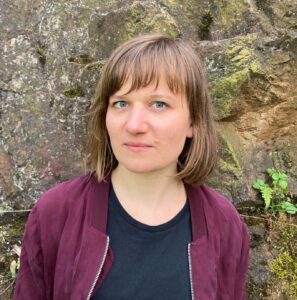

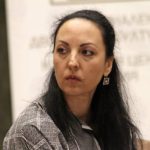
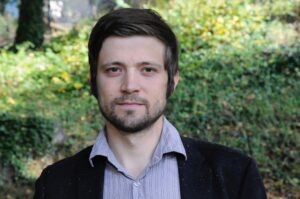
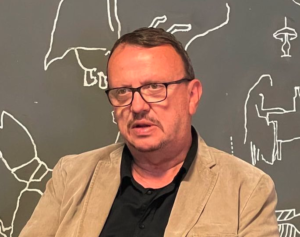

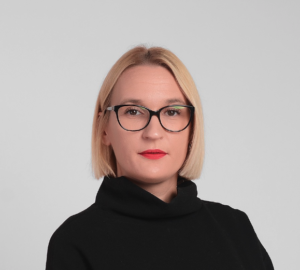
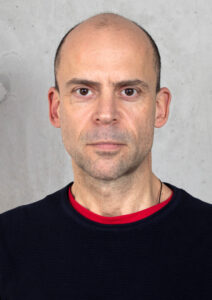
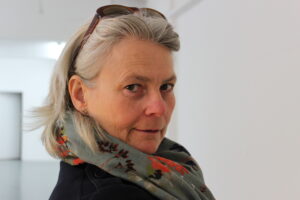

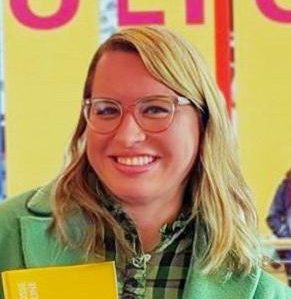
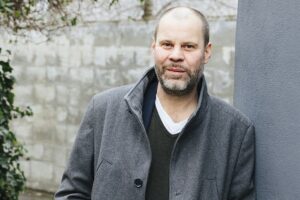
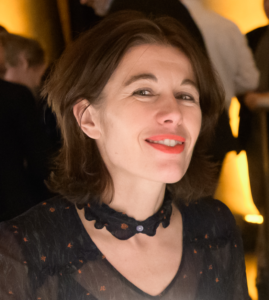

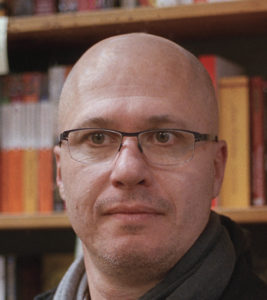

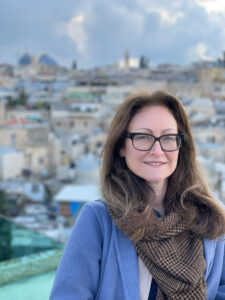

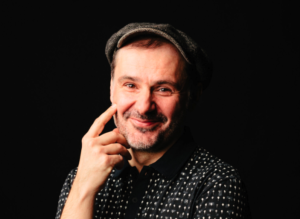

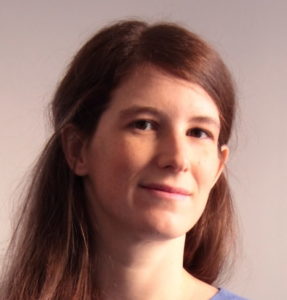

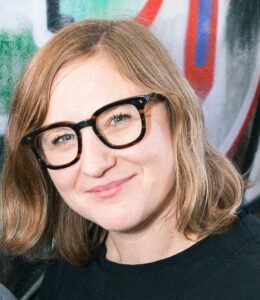



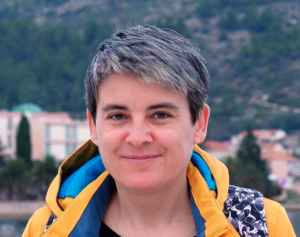

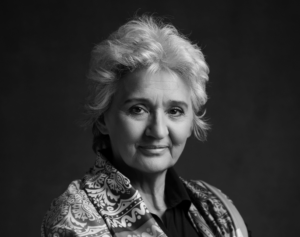



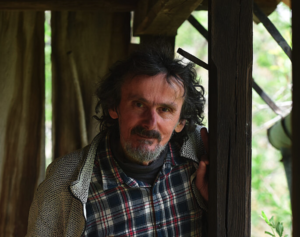


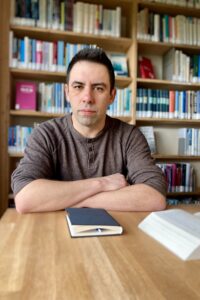
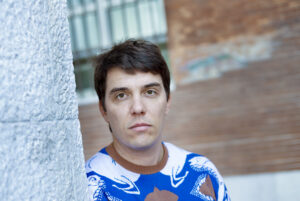
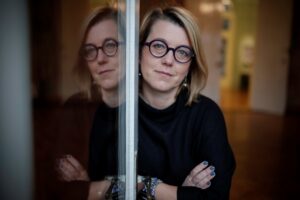
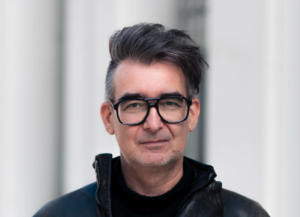

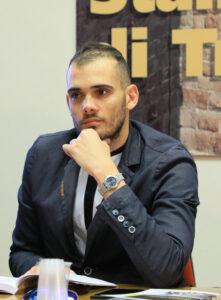

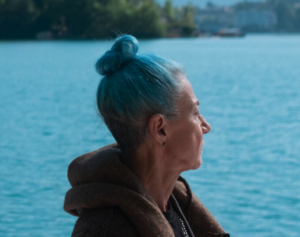
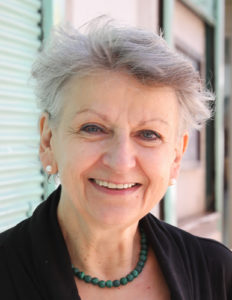
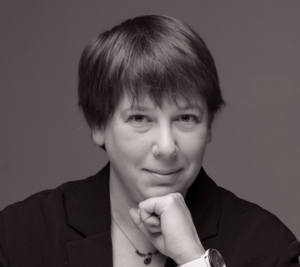
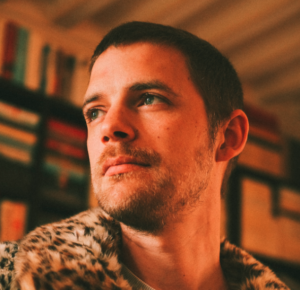
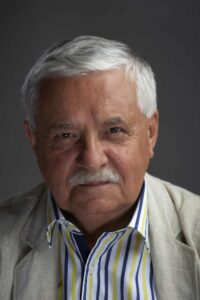
The full TRADUKI programme at the Leipzig Book Fair in the years 2023, 2022, 2021 and 2020 can be viewed here: